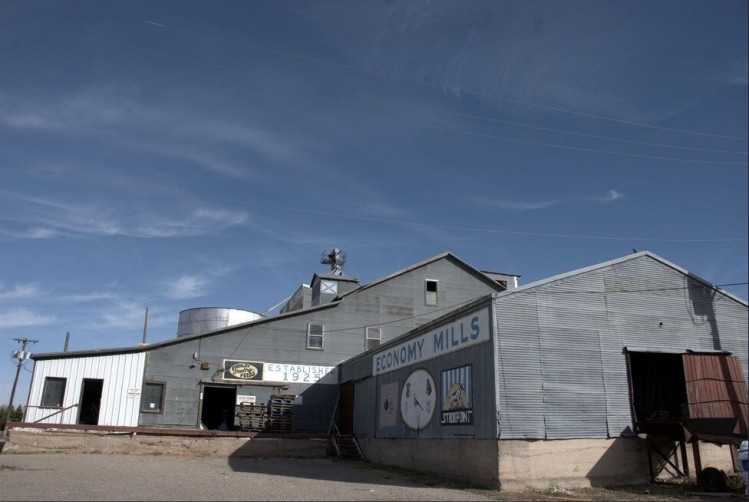US: New Country Organics looks to expand feed footprint

The Virginia-based feed and livestock mineral producer is expanding its generation of organic, soy-free feed with the purchase of a feed mill in Lubbock, Texas.
It took the company more than a year to find the right facility, in the right part of the country, said Kevin Fletcher, vice president of New Country Organics. “We were thinking of going west – we have a fairly strong presence on the East Coast and wanted to expand our footprint that way,” he said.
“It’s a good shipping area to reach the West Coast to distribute our feed,” he told FeedNavigator. “If you start heading back East it’s almost a midpoint – it just worked out well as far as freight rates.”
The location will allow for a reduction in shipping prices, as the company sells both to stores and directly to producers, he said. “Our goal is to get into Texas, New Mexico, [Arizona] and up into Colorado – those should all be fertile grounds,” he added.
Additionally, the area has a number of producers who already grow with organic grain and there is not another organic feed mill in that part of the state, he said.
Organic sourcing
The company is looking to establish relationships with local growers to source feed ingredients, said Fletcher. It only uses organic grains grown in the US or Canada.
“All of our grains come from North America, that’s a stance that we took a long time ago,” he said. “Every now and again that gets a little difficult, but farmers are coming to understand that they can make a good living.”
However, the company also will be exploring the use of some alternative feed ingredients, he said. Previously it used a variety of peas sourced from Canada, but many of the Texas growers raise black-eyed peas, which are in the same family.
“We’re going to give that a try, and if it works out we’ll probably be switching over to black-eyed peas,” he said. “We’ll see how that works out.”
Feed facility details
New Country is currently shipping bagged feed from its Virginia location to sell from the new mill, said Fletcher. The company is still in the process of refurbishing and cleaning the facility.
To meet organic certification all residue of past production using conventional grain must be removed, he said. The goal is to have production start in February or March of 2017.
The new facility adds 20 bins and a pelletizer to the company’s production ability along with the option of increasing feed output, he said. The company currently produces about 30 tons of feed a day.
“We could make four times what we make here,” he said of the new location. “What slows it down is how quickly we can bag it.”
Feed manufactured at the new site will continue to be soy-free, said Fletcher. And New Country will seek organic certification through Global Organic Alliance when work on the site is completed.
Poultry feed has been a major market for New Country, he said, but it also makes feed for other production animals. The Texas facility will make the full range of feed.
Feed varieties cover production animals like pigs, sheep, calves, cattle, dairy cattle and others including horses, rabbits and alpacas, the company said. It also produces animal health and soil supplements.
Company history and sales
When the organic feed business started it was entirely done by mail order, said Fletcher. However, it has expanded into retail locations and generated an online presence.
“When we first bought the business, we couldn’t find retail stores to buy the feed and we’d be shipping to houses in different areas,” he said.
Customers have continued to respond to delivery sales, he said.
“They like the fact that they can place the order, and it goes it out,” he said. “It used to be all called in, but we started doing a lot of online, and a majority of our business is now online.”












